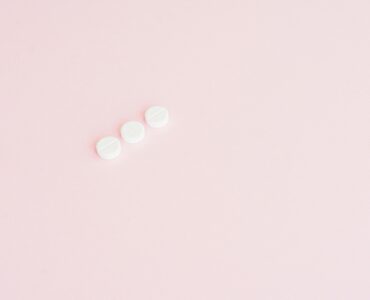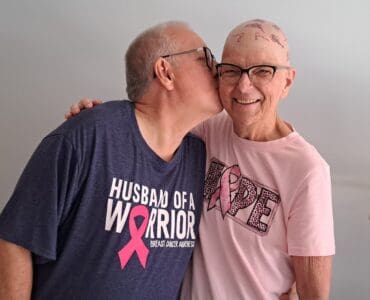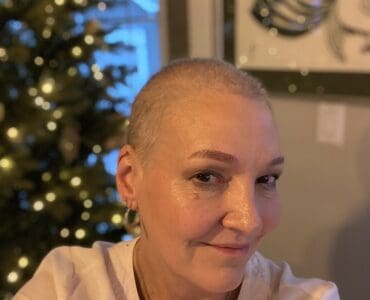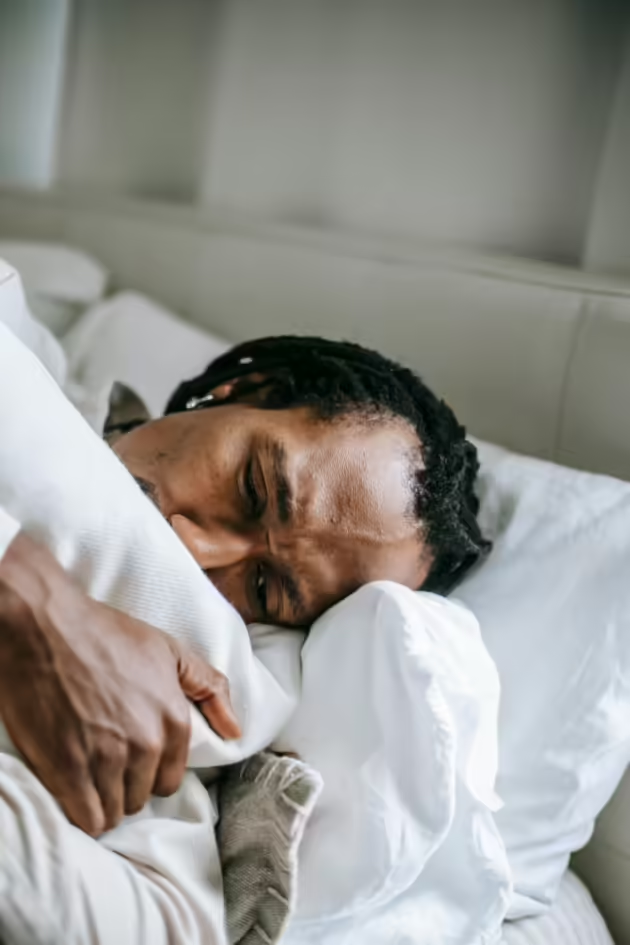When you undergo chemotherapy you can experience any number of chemo side effects. Losing your hair and nausea are the two most people associate with chemo, but there are lots of other possible side effects.
Mouth sores – I am prone to these at the best of times so I was apprehensive and they are super painful. The nurses told me mouth hygiene was key, so I brushed my teeth frequently and used an antibacterial mouthwash. My oncology team also recommended a couple of tablespoons of probiotic yogurt every day. It all worked, and I escaped the dreaded mouth sores.
Chemotherapy Induced Peripheral Neuropathy (CIPN) can affect up to 80% of people on my chemo regime. This is where your hands and feet tingle and can go numb. It is sometimes permanent. I heard from others to use cooling mitts and socks to help stave off neuropathy effects and issues with nail discolourization. I bought mine on Amazon and I wore them religiously. I have no science to prove it worked, but I was lucky and had no issues at all with neuropathy.
Bruising and nosebleeds can indicate low white or red blood count. They do blood work before every infusion to monitor, and if levels drop, they often have to postpone treatment. Fortunately, my levels were ok throughout, but after each treatment, the interior of my nose would be inflamed and it was inclined to bleed a bit. I also developed a lovely swollen eye for few days.
Fatigue. There’s no real way to escape the fatigue that comes along with a chemotherapy regime. It’s not that you are tired or sleepy. Rather, it feels that for a few days after treatment everything in your body moves at a snails pace. I used to say I felt like I was moving through peanut butter. Exercise helps here. As fatigued as you may feel, I found getting out to walk the dog around the block helped greatly. Chemo symptoms also follow a predictable pattern. Once you are into the routine, you’ll be able to predict your low days and plan your schedule accordingly. I was by no means bed-ridden at any point. I was healthy going into chemo and it helped. I worked throughout (I’m self-employed), entertained and exercised including my usual power walks and weights routines.
Nausea. I left after my first chemo appointment with a full bottle of anti-nausea pills. The advice is to stay ahead of any nausea symptoms so early on, I would take my dosage just in case. However, much to my delight, I never experienced the dreaded nausea. I had one day during my first routine I felt rather vile, but after that nothing. I didn’t lose my appetite either, although some foods did taste differently.
Bone and joint pain. The struggle is real – your bones do get quite achy after every treatment as the chemo is being absorbed into your bone marrow. It is often made worse by an injection you have to take after every treatment called Lapelga, which helps to boost your immune system. My oncologist recommended I take Claritin for the bone pain, and some Tylenol seemed to alleviate discomfort. Keeping up with exercise also helped. All that said, I’m not a doctor. Please consult with your medical team before taking any medications.
Chemo brain. Chemo does a number on you. Many people complain they can’t think straight during and after treatment. The thought of chemo-induced dementia was frightening to me – I write for a living! I met with an occupational therapist before beginning treatment to get some tips on how to manage the effects of chemo brain such as making lists and giving my brain rest time each day. Fortunately, my issues were not severe, but I have noticed I still struggle with word retrieval and some labelling issues, for instance using brother for husband and so on. It could be middle age, but I suspect Chemo is the culprit. I hope this goes away in time.
Remember, I’m not a doctor. This is my personal experience and account. You must always consult with your medical team about side effects you may be experiencing.




